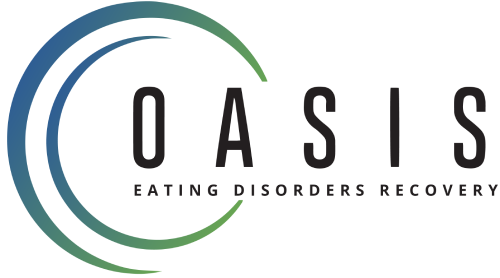Eating disorders are serious conditions that can profoundly impact a person’sperson’s mental and physical health. People who suffer from an eating disorder typically struggle with controlling their eating habits, resulting in an unhealthy relationship with food. This can lead to extreme weight loss, nutrient deficiencies, and physical and emotional distress. Fortunately, with the help of a comprehensive treatment plan, individuals with an eating disorder can begin to recover.
That said, the body’s reaction when recovering from an eating disorder can vary depending on the individual’s health prior to treatment.
What Should I Expect from My Metabolism While I Am Recovering?
People with eating disorders often experience periods of malnutrition, during which their bodies reduce their metabolism in an attempt to conserve the limited amount of calories they are receiving. The body becomes hypermetabolic, however, when nutritional rehabilitation begins.
In other words, your body goes into high gear and starts using the fuel it was lacking, first focusing on rebuilding the essential organs and processes necessary for survival.
The increased metabolic rate may last for a few months. A person recovering from an eating disorder will have higher nutrient requirements than a healthy individual of the same weight, height, and age until nutritional rehabilitation is complete.
Maintaining one’sone’s weight during recovery by cutting back on calories can compromise vital bodily functions like digestion and reproduction in favor of keeping the body alive. For this reason, ensuring that your body is receiving sufficient nourishment is crucial.
What Happens to My Weight While I’m Recovering?
For reasons other than what you might expect, weight fluctuations are fairly normal when first starting the refeeding process.
The first reason is that the body is resetting itself after having been in a catabolic state (one of breakdown) and is now in an anabolic (healing) condition. In the first week of refeeding, this may lead to a temporary loss of weight, but this effect will quickly be canceled out.
The second reason is that your body is finally getting the water it needs. Dehydration is a serious risk for people with eating disorders due to using laxatives or diuretics, purging, consuming large amounts of coffee, or refusing to drink water. They may be over-hydrated if they’re drinking too much water. It’s normal for weight to fluctuate when the body rehydrates.
Weight gain occurs over time because of the slow but steady accumulation of both lean and fat tissue. The skeletal muscles (those utilized for movement) and other damaged organ tissue are rebuilt and repaired with the creation of lean mass. The second type of fat to return is the layer that protects your essential organs during recuperation, and it usually appears first in the abdominal region.
Regaining your pre-loss weight is only the beginning of your journey to full recovery, which is determined by your attitude, outlook, and actions.
Throughout My Recovery, How Will My Digestion Change?
The energy that would typically go toward maintaining the structure and function of the gut is diverted to more crucial survival functions during a chronic famine, as seen in eating disorders. Digestive problems such as gastroparesis (slow stomach emptying), diminished gastric capacity, gastrointestinal tissue waste, and sluggish colonic motility are the result. All of this suggests that the gut quits functioning normally.
Fortunately, this can be fixed by eating right. However, the refeeding phase requires time for the gut to heal and regain its function. As a result, it’s not uncommon for people to feel pain or discomfort, nausea, constipation, bloating, distention, or an unnatural sense of fullness in the early stages of recovery.
By providing your digestive system and the rest of your body with the nutrients they require, you may help them recover to full health. Remember that regaining lost weight after an eating disorder can take a year.
Conclusion
Recovery from an eating disorder is a difficult journey, but it is possible with the right support system. Eating disorders are caused by a combination of biological, psychological, and environmental factors.
With the right treatment and support, individuals with eating disorders can make a full recovery and lead healthy, meaningful lives.
If you are looking for a well-trusted eating disorder recovery center that would help you with your compulsive overeating or food addiction, look no further than our expertise here at Oasis Eating Disorders Recovery. We understand that living with an eating disorder takes a toll on the individual, as well as their friends and family. We are here to offer support, compassion, and hope as you navigate the recovery journey. Call us today to book your first eating disorder session with us.

